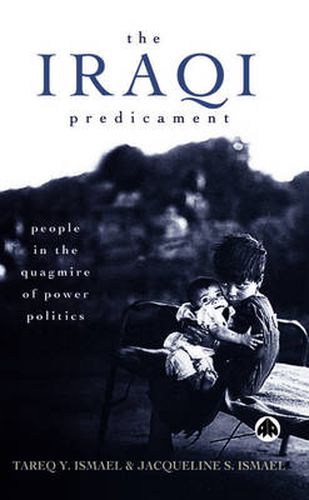Readings Newsletter
Become a Readings Member to make your shopping experience even easier.
Sign in or sign up for free!
You’re not far away from qualifying for FREE standard shipping within Australia
You’ve qualified for FREE standard shipping within Australia
The cart is loading…






On February 15, 2003, over 6 million people around the world marched in protest against a threatened war on Iraq. The protest was unprecedented in world history as it preceded war. In effect, an international coalition of people was attempting to assert its will onto the stage of power politics to forestall a war demanded by the world’s only superpower. In the light of these remarkable events, it is now more important than ever to properly assess Iraq’s role in world politics, and the impact that sanctions and war has had on the people of the country. This book serves both as a history of the region, an assessment of its role in the broader political landscape, and a moving account of the day-to-day reality experienced by the people of Iraq. It is divided into five sections. Firstly, the authors look at Iraq’s – and Saddam Hussein’s – political role in the region of the greater Middle East. They examine the role of the UN, sanctions and warfare, explaining what has happened on the ground and what the reality is for Iraq’s civil population and related humanitarian questions. They then assess American policy towards Iraq and how this has changed since September 11, setting it within the broader context of America’s involvement in the Middle East. They offer a historical analysis of Russian-Iraqi relations. Finally, they look at social policy within Iraq, explaining how the internal welfare system has collapsed since the Gulf War, and the continuing effects of depleted uranium. There is no doubt that war has had a serious effect on the Iraqi people. This timely account helps us understand the true effect the war has had, and how we can establish more just forms of social intervention in the future.
$9.00 standard shipping within Australia
FREE standard shipping within Australia for orders over $100.00
Express & International shipping calculated at checkout
On February 15, 2003, over 6 million people around the world marched in protest against a threatened war on Iraq. The protest was unprecedented in world history as it preceded war. In effect, an international coalition of people was attempting to assert its will onto the stage of power politics to forestall a war demanded by the world’s only superpower. In the light of these remarkable events, it is now more important than ever to properly assess Iraq’s role in world politics, and the impact that sanctions and war has had on the people of the country. This book serves both as a history of the region, an assessment of its role in the broader political landscape, and a moving account of the day-to-day reality experienced by the people of Iraq. It is divided into five sections. Firstly, the authors look at Iraq’s – and Saddam Hussein’s – political role in the region of the greater Middle East. They examine the role of the UN, sanctions and warfare, explaining what has happened on the ground and what the reality is for Iraq’s civil population and related humanitarian questions. They then assess American policy towards Iraq and how this has changed since September 11, setting it within the broader context of America’s involvement in the Middle East. They offer a historical analysis of Russian-Iraqi relations. Finally, they look at social policy within Iraq, explaining how the internal welfare system has collapsed since the Gulf War, and the continuing effects of depleted uranium. There is no doubt that war has had a serious effect on the Iraqi people. This timely account helps us understand the true effect the war has had, and how we can establish more just forms of social intervention in the future.